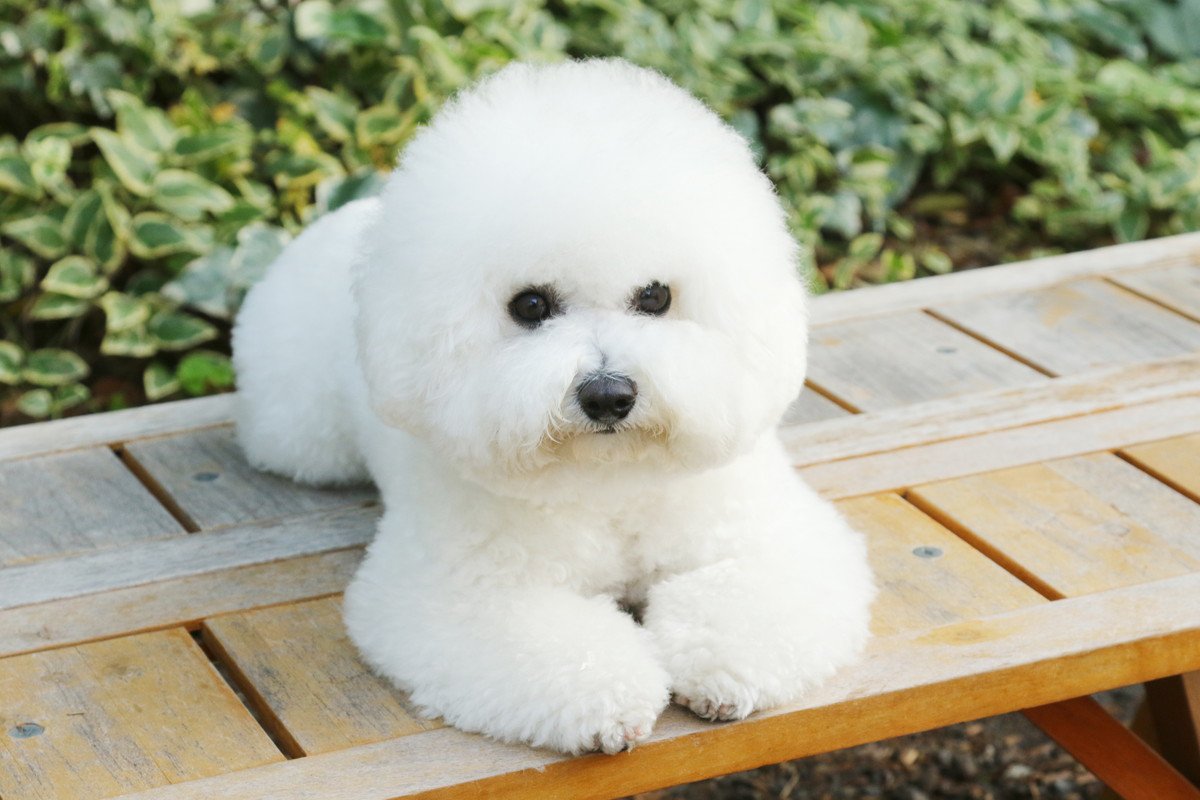Bichon Frise Dog Breed
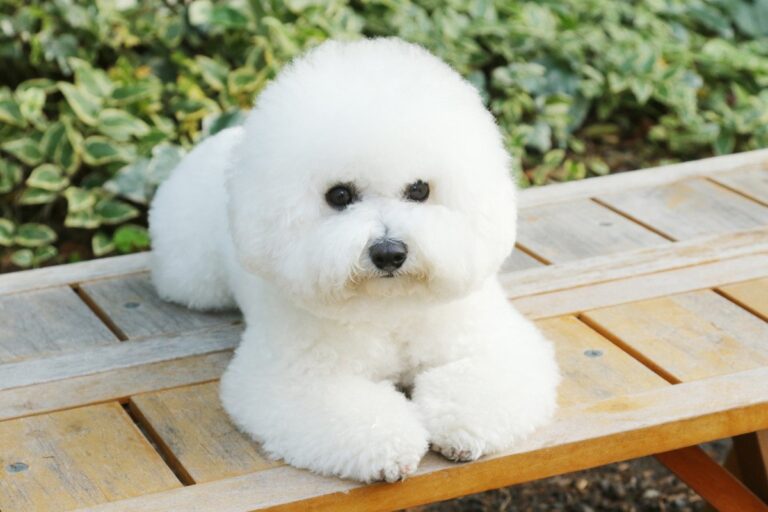
| Aspect | Details |
|---|---|
| Origin | Spain/France |
| Birth Era | 14th century |
| Crossbreed | No, purebred |
| Temperament | Cheerful, playful, gentle, affectionate |
| Physique | Small, 10-20 pounds, fluffy |
| Coat | Curly, soft, hypoallergenic coat |
| Lifespan | 12-15 years |
Originating from medieval Europe, the Bichon Frise is popular in Japan for its adorable appearance and friendly nature. With a history of being cherished by French nobility, this breed stands out with its well-proportioned small stature and fluffy white fur.
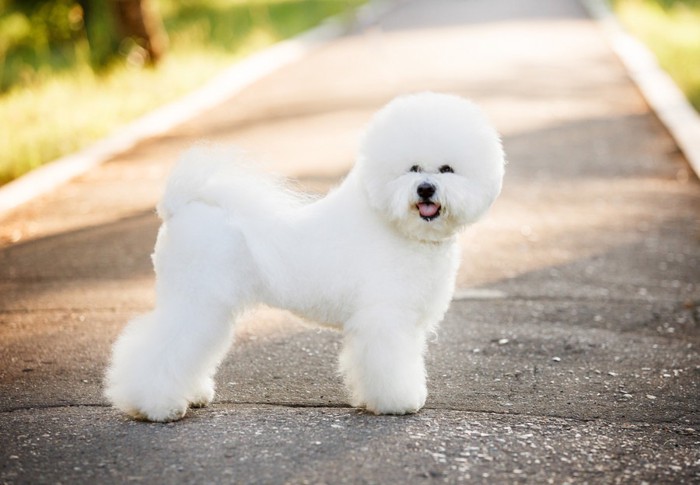
The Bichon Frise, known for its high intelligence and sociability, has a coat that is less likely to cause allergies, making it suitable even for people with allergies. Its lively and amicable personality makes it an ideal pet for Japanese families, getting along well with children and other pets. Its history and traits have long made the Bichon Frise a beloved breed in Japan, cherished by many over the years.
Coat Color
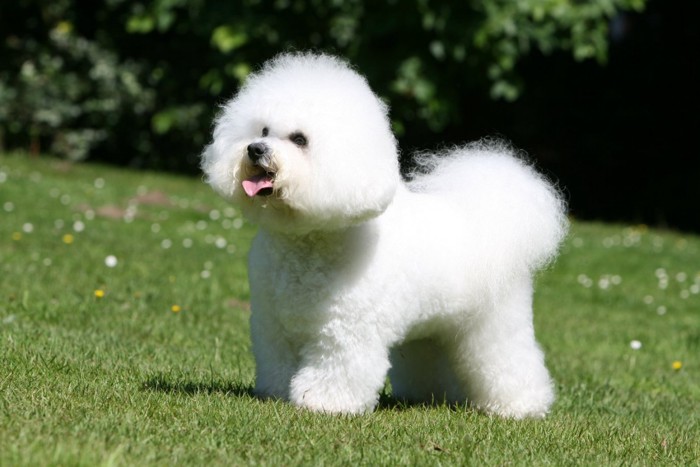
The coat color of the Bichon Frise is a significant aspect of its attractive appearance in Japan. This breed is particularly known for its pure white fur, which features a rich and fluffy texture, and its bright white color enhances their adorable look.
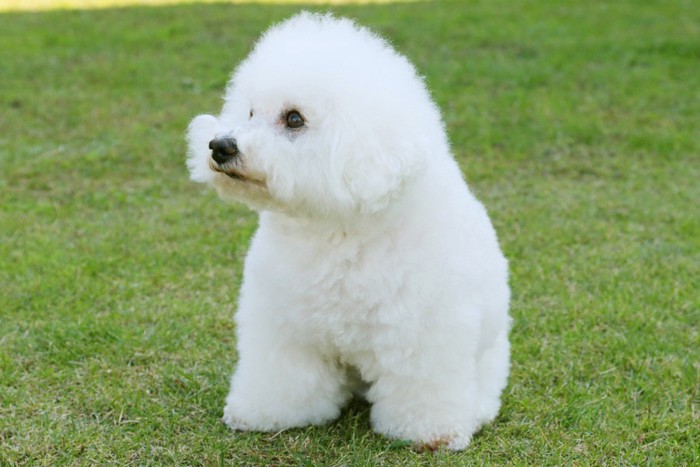
In Japan, occasional shades of cream or pale yellow may be seen, but predominantly, the pure white color is most common. This pristine whiteness is highly valued as a characteristic feature of the Bichon Frise. In Japanese households, this beautiful coat color further elevates the popularity of the Bichon Frise.
Coat Type
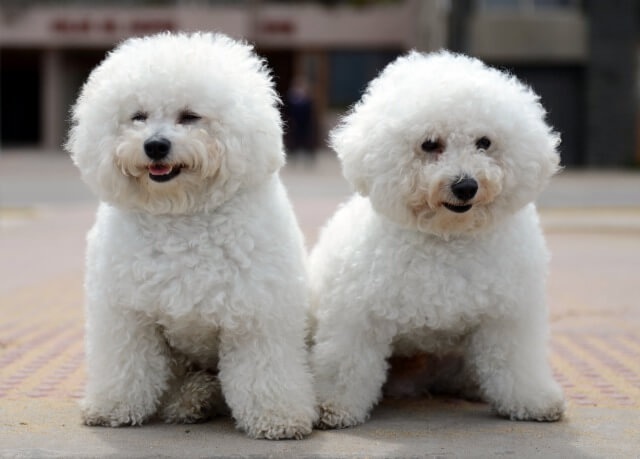
The coat of the Bichon Frise is recognized in Japan as a vital element forming its distinctive appearance. This breed’s fur is rich and curly in texture, being incredibly soft and fluffy. The Bichon Frise’s white and soft coat is low in allergens, making it suitable for people with allergies in Japan.
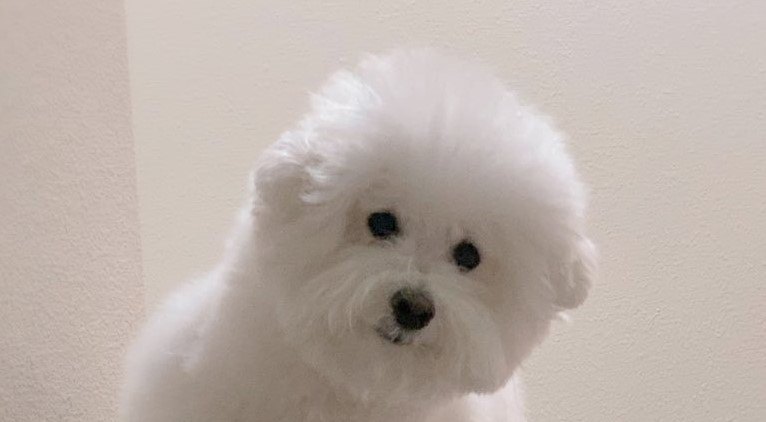
While the breed’s fur is relatively non-shedding, the importance of regular grooming is emphasized in Japan. With proper care, the Bichon Frise can maintain its beautiful coat and lead a healthy life, making it a cherished aspect among Japanese pet owners. The combination of its unique coat and hypoallergenic qualities adds to the appeal of the Bichon Frise in Japanese households.
Size
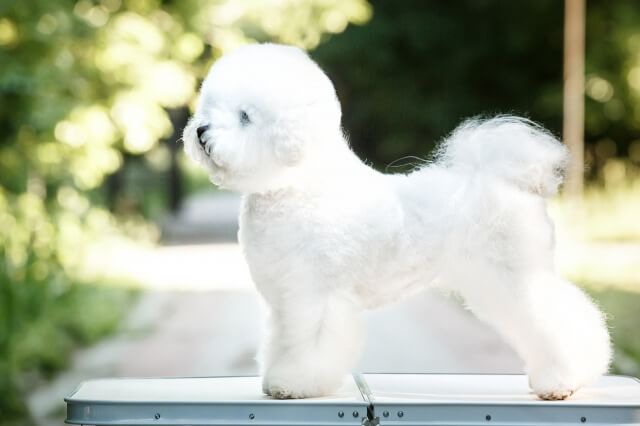
The Bichon Frise, a small breed, has a size that is particularly appealing to households in Japan. The average shoulder height of an adult Bichon Frise ranges from about 9 inches (23 cm) to 11.8 inches (30 cm), making them well-suited for living in Japanese apartments and small homes. Furthermore, their compact physique contributes to ease of handling and transport, fitting into the lifestyle of many Japanese families.
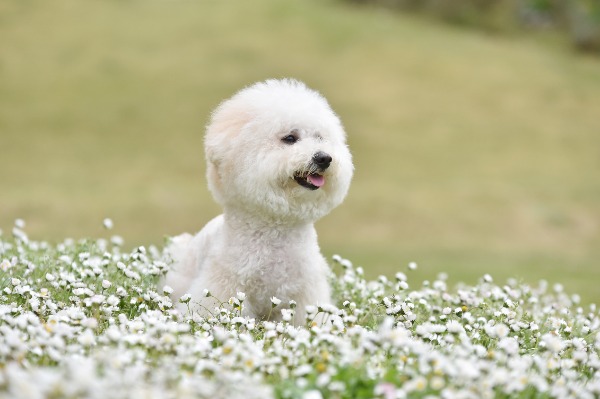
In Japan’s typically compact living environments, small breeds like the Bichon Frise are especially popular, with their size being a key factor in their suitability for domestic living. This compact size makes them a convenient and attractive choice for many Japanese pet owners.
Weight
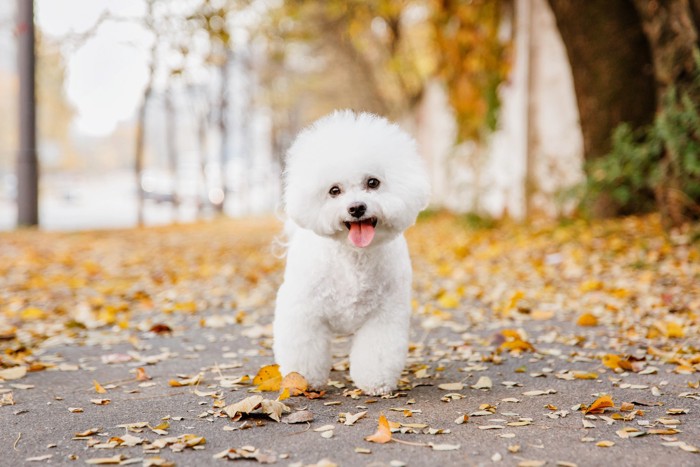
In Japan, weight management for Bichon Frises is crucial for maintaining their health. The ideal weight for an adult Bichon Frise ranges from about 11 pounds (5 kg) to 22 pounds (10 kg). As this small breed tends to be prone to obesity,
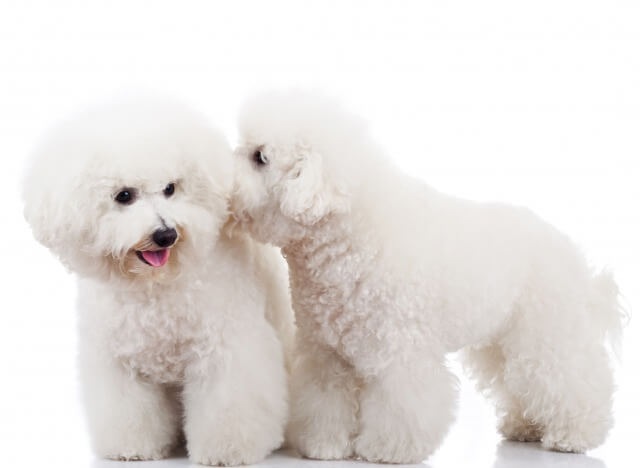
careful attention to diet quantity and quality is essential. Japanese owners endeavor to maintain proper weight through a balanced diet and moderate exercise.
Lifespan
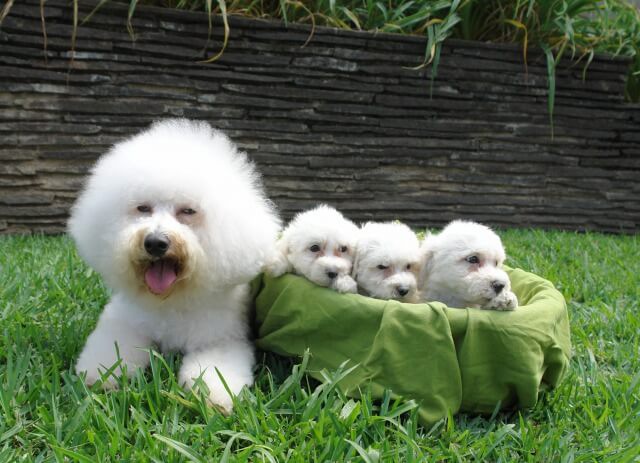
In Japan, Bichon Frises have an average lifespan of 12 to 15 years, but with proper care and health management, their lives can be extended.
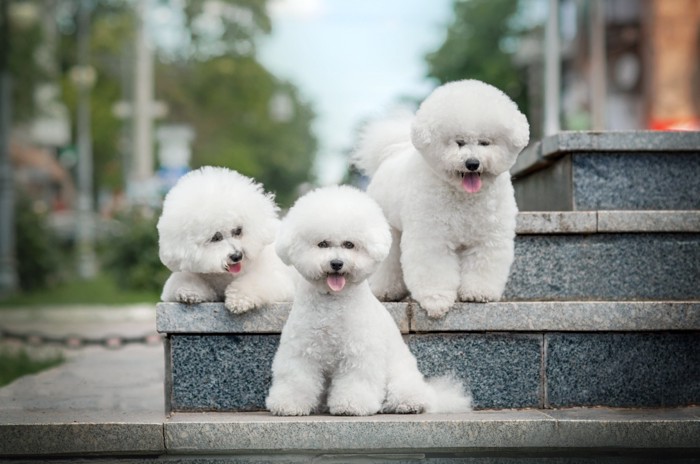
The culture in Japan places high value on the health and longevity of pets. Bichon Frise owners in Japan focus on maintaining their health over the long term, through quality nutrition,
Trainavility
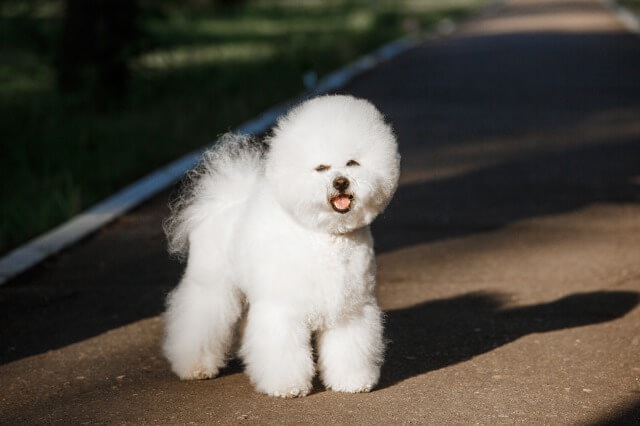
The Bichon Frise, known for its high trainability, is also highly regarded in Japan. They are intelligent and eager to learn, responding very well to positive reinforcement training. This affectionate breed, seeking strong bonds with humans, effectively learns basic commands and tricks through the patient and gentle approach practiced by Japanese owners.
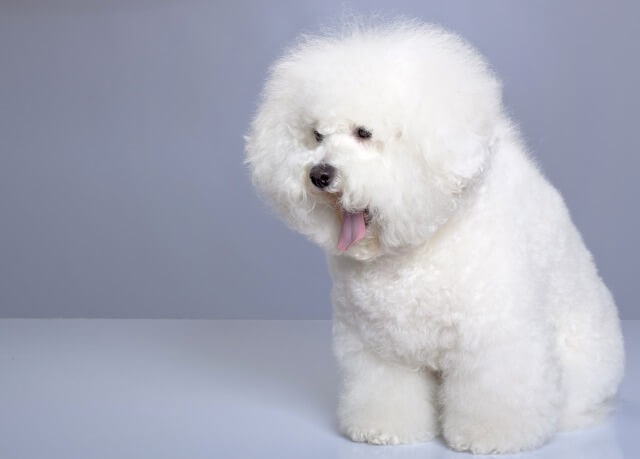
In Japan, understanding the Bichon Frise’s preference for pleasing people and incorporating fun into training sessions is considered vital. This enjoyable learning approach is key to the successful training of Bichon Frises, aligning with Japanese pet care practices. Japanese owners prioritize building a strong bond with their Bichon Frises through positive and enjoyable training experiences, which contribute to well-behaved and happy pets.
Exercise
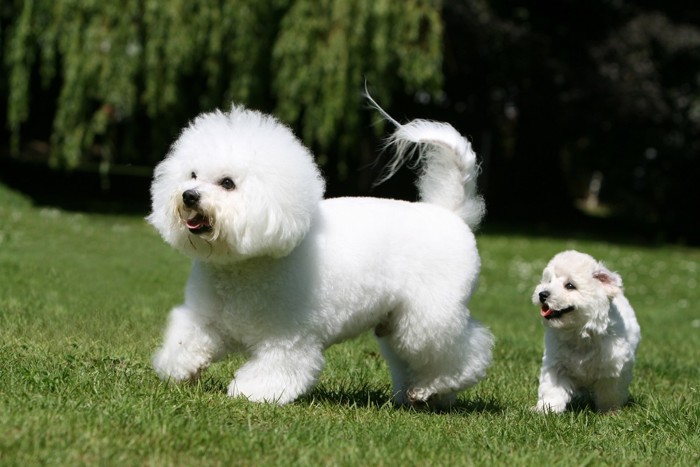
In Japan, the Bichon Frise is known for its lively and playful nature. To prevent stress from lack of exercise, daily walks are highly recommended in Japanese households. Playing indoors with toys also brings great joy to a Bichon Frise,
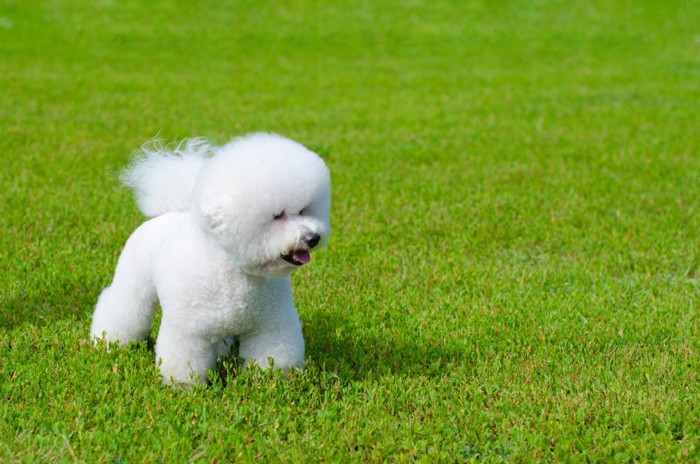
beyond just walking. As a small breed, they do not require long walks. In Japan, it is common to take them for two walks a day, each lasting about 10 to 15 minutes in the morning and evening. Such moderate exercise is crucial in maintaining the health of a Bichon Frise and supporting a happy life in Japanese homes.
Feeding
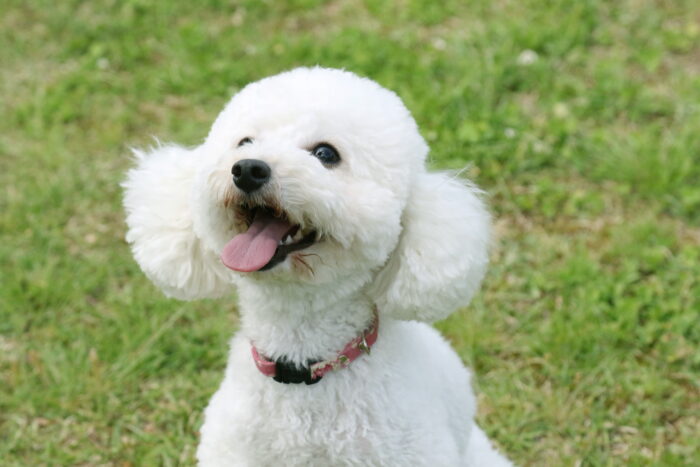
In Japan, managing the diet of a Bichon Frise is seen as crucially important for their health and happiness. This small breed requires high-quality, nutritionally balanced food. Choosing dog food that adequately includes proteins, fats, carbohydrates, vitamins, and minerals is particularly important. It’s desirable for a Bichon Frise’s diet to be rich in nutrients like omega fatty acids and zinc to maintain the health of their skin and coat.
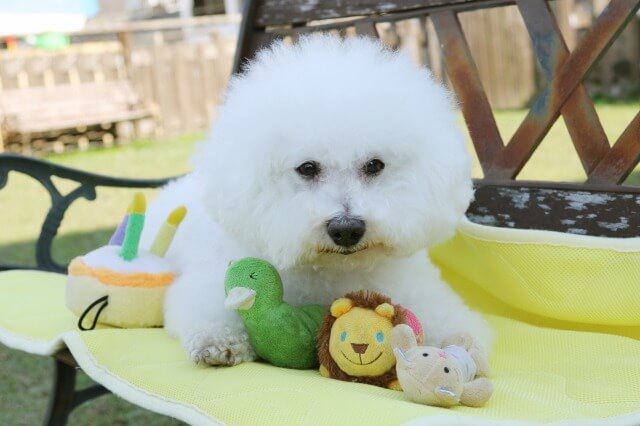
In Japan, there is a heightened awareness of pet health, and a culture has developed around supporting the longevity and well-being of pets through nutrient-rich diets. This emphasis on proper nutrition plays a significant role in ensuring the health and happiness of Bichon Frises in Japanese homes.
Temperament
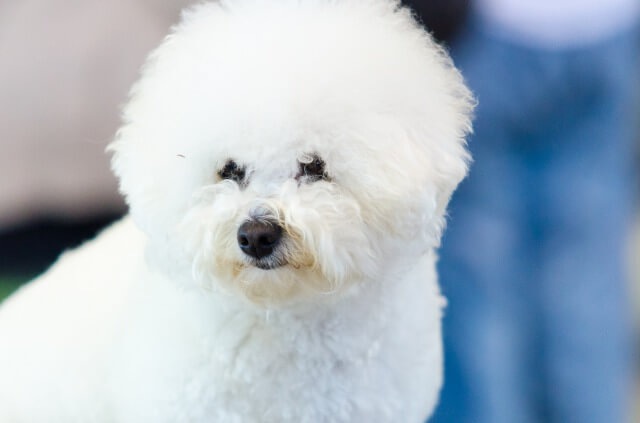
In Japan, the Bichon Frise is known for its cheerful and friendly temperament. This breed forms strong bonds with families, showing great affection as a family member, and has a sociable nature that allows it to build good relationships with children and other pets. The Bichon Frise’s high intelligence and ease of training make it an excellent household pet in Japanese homes.
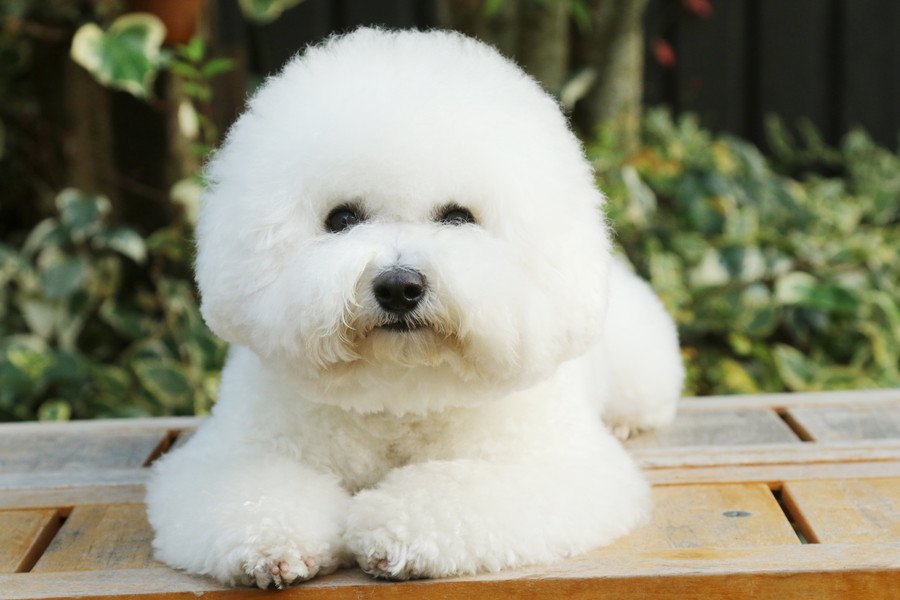
However, this breed tends to experience separation anxiety, so it is advised in Japan to avoid long periods of solitude and incorporate regular exercise and play. This helps reduce stress and maintain a healthy mental state. The affectionate and sociable nature of the Bichon Frise is a key reason for its popularity in many Japanese households, as it fits well with the culture that values strong bonds and companionship with pets.
History
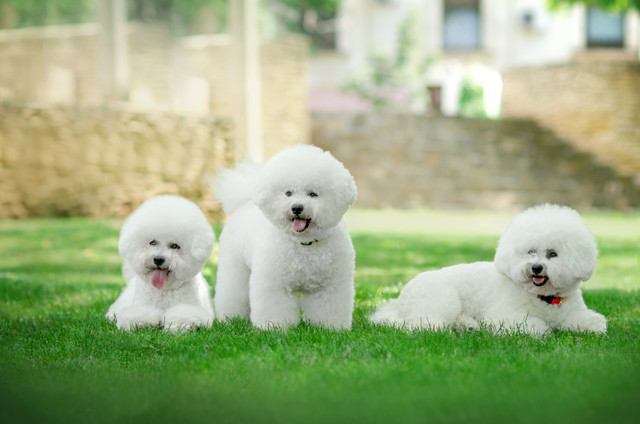
The history of the Bichon Frise, originating in medieval Europe, is respected in Japan for its rich heritage. Particularly beloved by nobility in France and Belgium, this breed is known for its adorable appearance and affectionate nature. From the 14th to the 15th century, the Bichon Frise spread worldwide by accompanying sailors on their voyages, with its lush white fur and small stature contributing to its popularity.
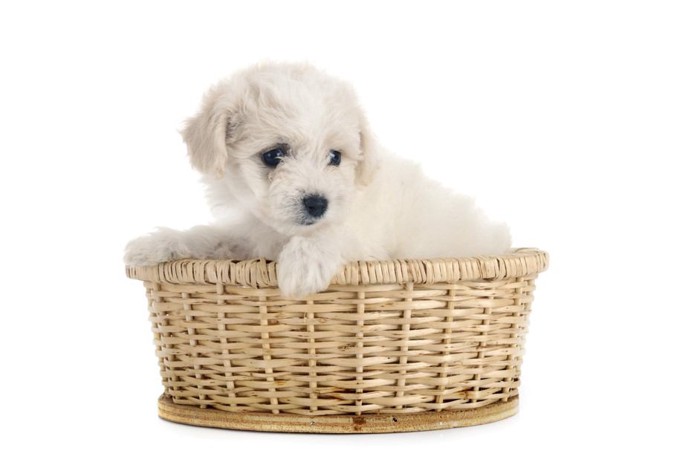
By the 20th century, it established its status as a household pet and became beloved by dog enthusiasts globally, including in Japan. In Japan, the history of the Bichon Frise is revered as a testament to the deep bond developed between humans and this endearing breed. This historical background adds to the charm and appeal of the Bichon Frise for many Japanese dog lovers.
Grooming
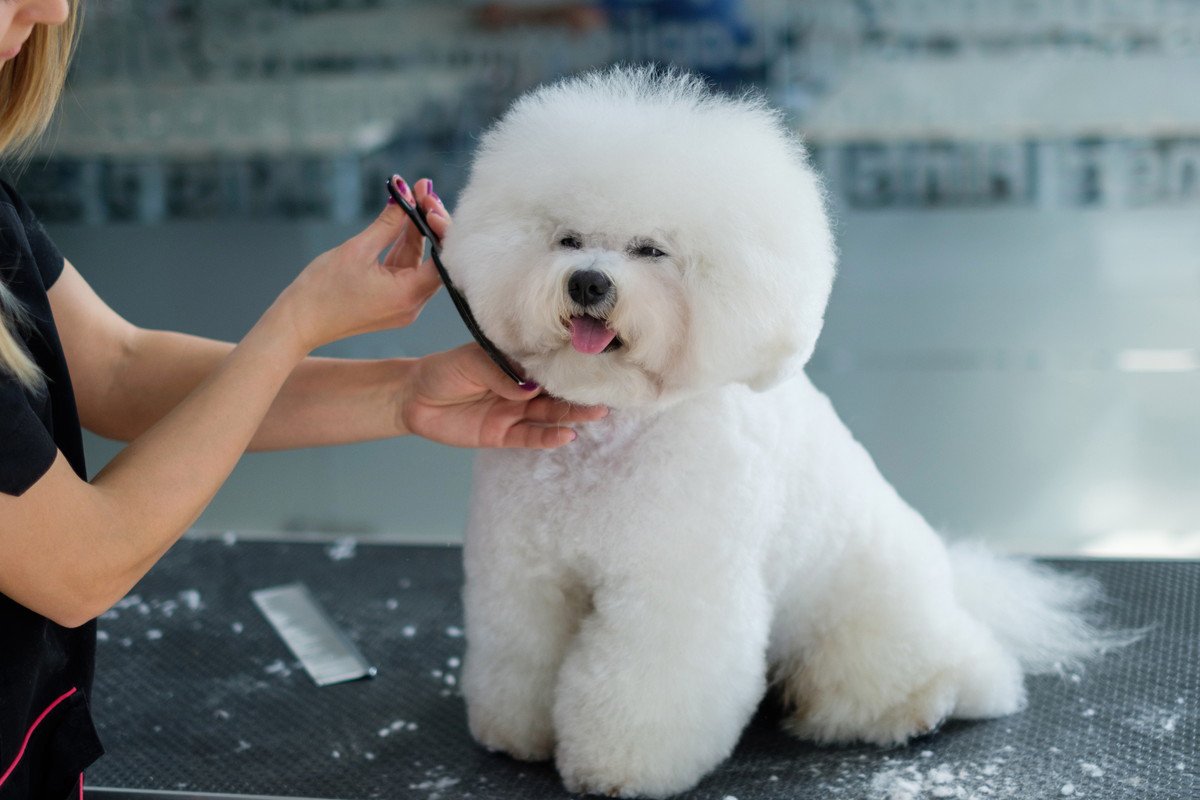
In Japan, grooming a Bichon Frise is crucial for maintaining their appearance and health. This breed, known for its lush, fluffy white coat, requires regular care. To prevent tangling and matting, Japanese owners diligently brush their Bichon Frises daily. Monthly grooming is essential to preserve their beautiful appearance, including routine ear cleaning and nail trimming. Bathing, done monthly or as needed with a mild shampoo, contributes to the health of their skin and coat. Even though their fur is less likely to cause allergies, proper grooming is key to maintaining skin health.
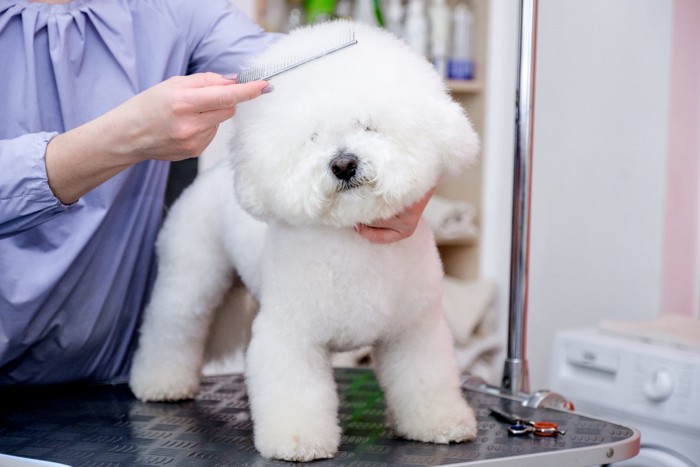
In Japan, appropriate grooming is considered important not only for the comfort and health of the Bichon Frise but also for maintaining their attractive appearance. This meticulous care reflects the dedication of Japanese pet owners in ensuring the well-being and beauty of their beloved Bichon Frise companions.
Health
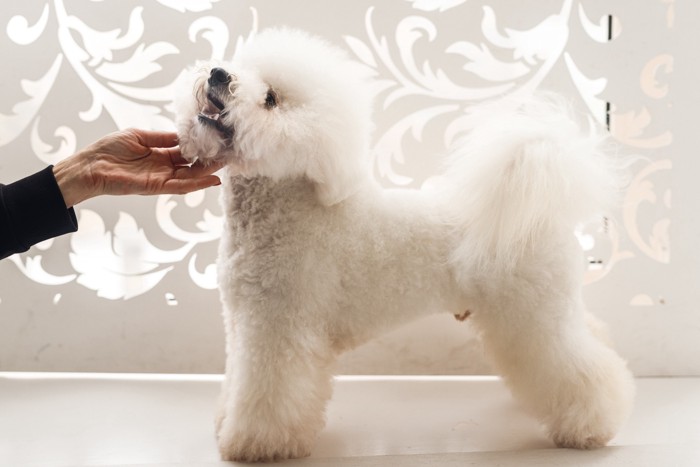
While Bichon Frises are generally a healthy breed, in Japan, attention to specific health issues is considered crucial. Skin allergies and infections can be prevented with proper grooming and a clean environment. Bichon Frises are also prone to joint issues like patellar luxation and hip dysplasia, hence regular exercise and a well-balanced diet are particularly recommended in Japan for maintaining their health. Eye problems and periodontal disease are other health concerns in Bichon Frises, requiring appropriate care.
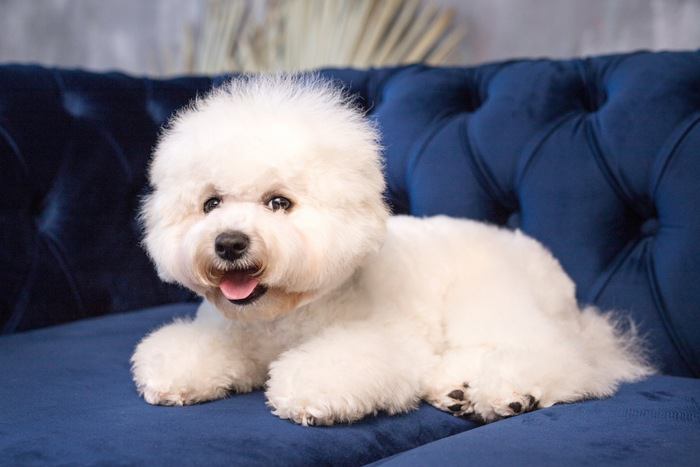
Japanese owners are proactive in preventing and addressing these health issues to maintain the well-being of their Bichon Frises. This proactive approach to healthcare reflects the dedication of Japanese pet owners in ensuring that their Bichon Frise companions lead healthy and happy lives.

